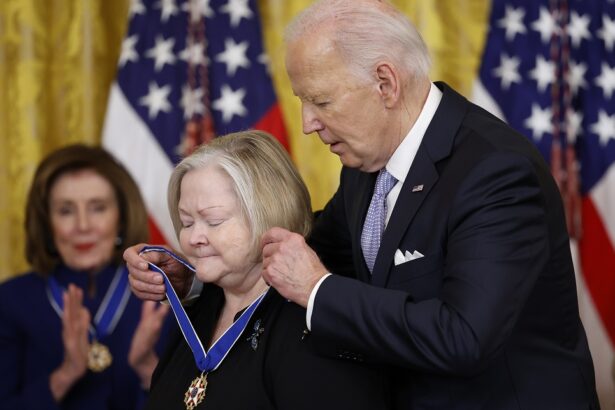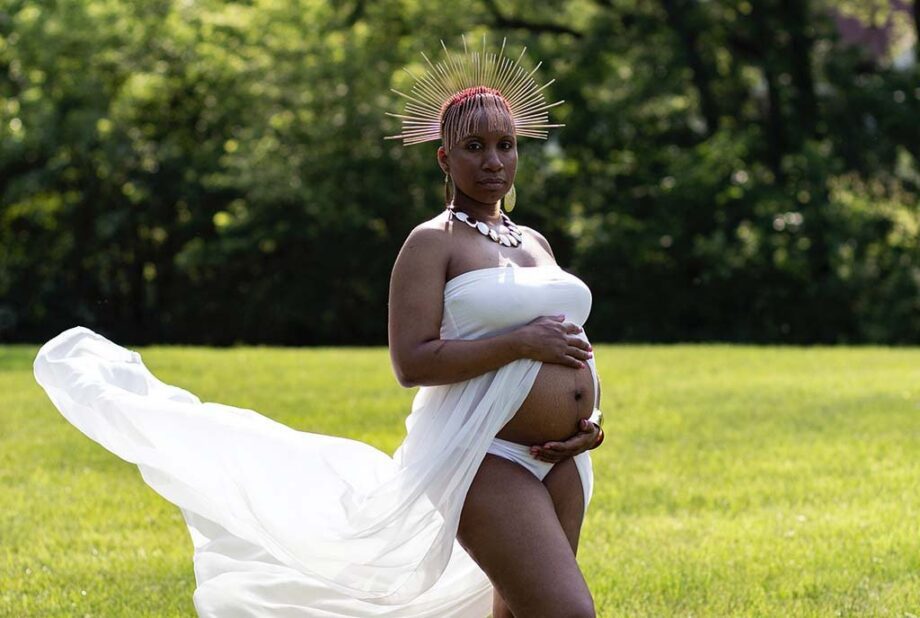“Black women, girls, and gender-expansive people are dynamic leaders in every part of this country.”Amidst the threats to reproductive rights and the unequal access to healthcare faced by Black individuals in the US, a report from In Our Own Voice, the 2023 National Black Reproductive Justice Policy Agenda, seeks to outline a Black-centric reproductive justice agenda.
Reframing Reproductive Justice
The extensive report, authored by Regina Davis Moss, president and CEO of In Our Own Voice; Toni M. Bond, cofounder, president, and CEO of Interfaith Voices for Reproductive Justice; and Dazon Dixon Diallo, founder and president of SisterLove, Inc., proposes an “innovative, proactive policy agenda” developed in collaboration with over 50 Black women’s organizations and advocates to bolster Black reproductive justice.
Highlighting the dual roles played by Black women, girls, and gender-expansive individuals as leaders in various domains alongside pervasive attacks on their civil and human rights, the authors note the precarious nature of the current situation and its harmful impact on this community.
Despite the multitude of threats faced, the authors emphasize the importance of an unwavering commitment to Reproductive Justice, advocating for a collective framework anchored in human rights and Black Feminist theory which acknowledges the interconnectedness of identity and issues, and the necessity to address each aspect comprehensively.
Reproductive Justice as a Human Right
The report integrates four key “human rights values” informing its analysis and recommendations, centered on a human rights framework and Black feminist theory:
- The right not to have a child
- The right to have a child
- The right to social and economic support to parent the child(ren) one already has, free from various forms of violence
- The right to sexual expression and sexual pleasure
These principles also define the “obligations of governments and society” to ensure the realization of these rights.
“Black birthing people have unacceptably poor outcomes in the US.”The report additionally outlines numerous areas of focus related to health equity, access, social and community justice, and safety, presenting concrete recommendations for each. The full report and executive summary are accessible to the public for detailed policy recommendations.
The report underscores a transformative agenda for Black reproductive health, challenging the current norms through critical assessments of their impact on Black women and girls.
Specifically addressing maternal health and pregnancy care, the report advocates for the establishment of a Federal Office of Sexual and Reproductive Health and Wellbeing, increased support for doulas and midwifery, enhanced funding for epidemiological studies on morbidity and mortality nationwide, mandatory year-long postpartum care, and the implementation of universal incomes for low-income pregnant individuals.
Sign up for our free newsletters
Subscribe to NPQ’s newsletters to have our top stories delivered directly to your inbox.
By signing up, you agree to our privacy policy and terms of use, and to receive messages from NPQ and our partners.
The report stresses the imperative for Reproductive Justice to ensure safety and well-being during pregnancy and childbirth for Black individuals, highlighting the unacceptably high rates of pregnancy-related deaths among this demographic.
The report also urges extending reproductive justice measures to incarcerated women, ultimately striving for a comprehensive and inclusive vision of reproductive health for Black communities.
Black Incarcerated Women and Maternal Health
On access to reproductive care, the report offers several suggestions including passing abortion access bills, eliminating cost-sharing for abortion care, and ending funding for “crisis pregnancy centers.” The agenda also covers social justice, community justice, and safety, focusing on issues such as voting rights, police violence, economic justice, LGBTQIA+ liberation, and environmental justice. These recommendations aim to create equitable access to resources and opportunities for Black women, girls, and gender-expansive individuals. The report emphasizes the need for policies that ensure the safety and liberation of Black women, girls, and gender-expansive individuals. It acknowledges the challenges in achieving progress and anticipates that the agenda will continue to evolve to address ongoing reproductive justice issues. The document presents these policy recommendations as a starting point for policymakers to collaborate with communities to make reproductive justice a reality. While the report outlines comprehensive and adaptable policies, the true test lies in their effective implementation to benefit the individuals and groups they seek to empower.




